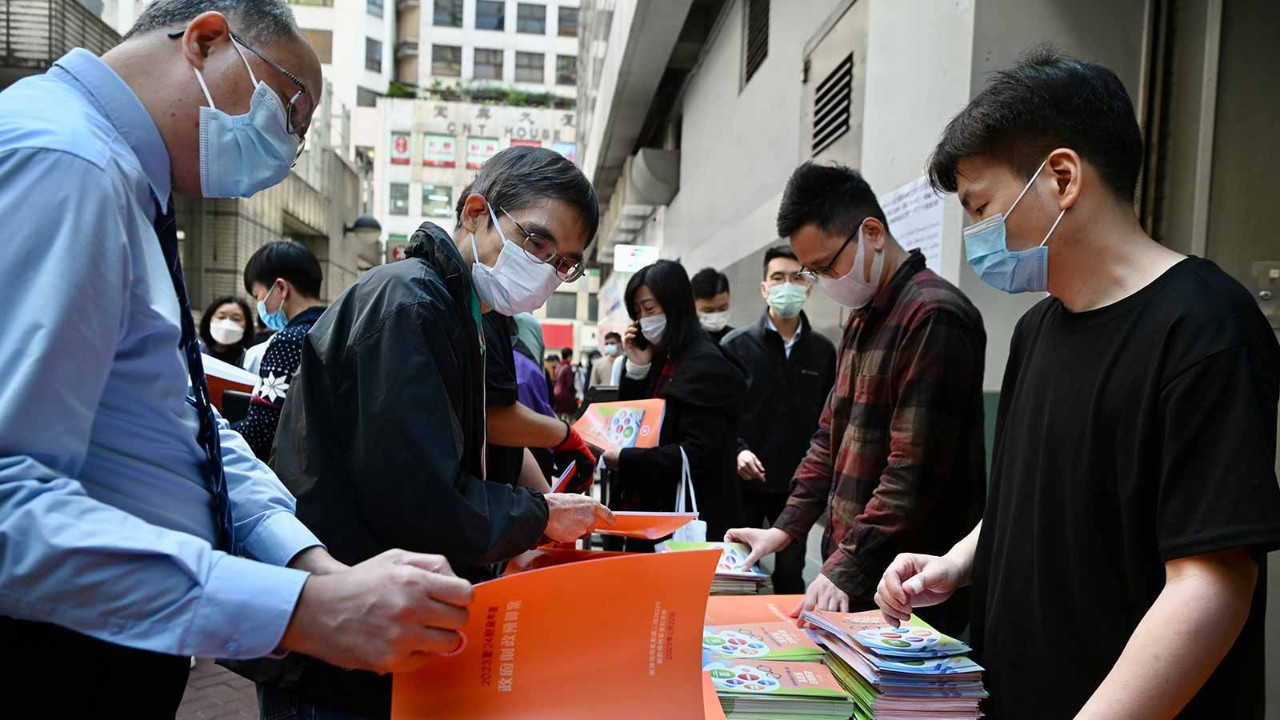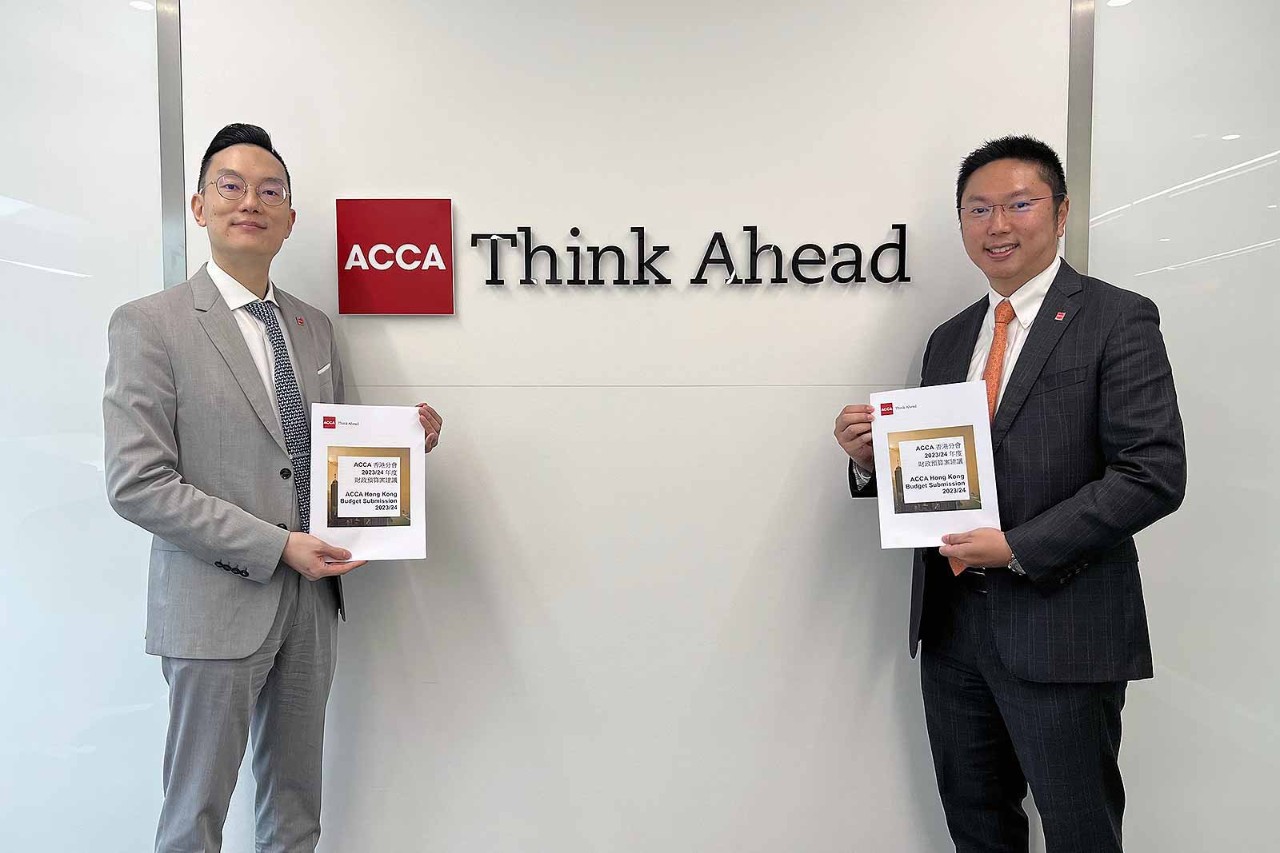
Delivered against the backdrop of an expected financial deficit of nearly HK$140bn for the financial year, Paul Chan, the financial secretary of the Hong Kong Special Administrative Region (SAR) rolled out a package of Budget measures aimed at boosting revenues and creating new engines of growth.
ACCA Hong Kong’s tax subcommittee co-chairmen, Charles Chan and Stanley Ho, give their views on the measures and look at which recommendations from ACCA’s Budget submission were included.
‘Overall, the financial secretary can be credited for delivering a balanced, three-dimensional Budget’

What is the Tax Sub-committee’s overall view of the financial secretary’s Budget?
Stanley Ho Overall, the financial secretary (FS) can be credited for delivering a balanced, three-dimensional Budget. While the HK$5,000 digital consumption voucher was half the amount for which ACCA advocated, taking into account the large financial deficit, the consumption voucher issuance will have a positive effect on consumer sentiment and help to alleviate livelihood pressures.
ACCA welcomes the progressive rating system for domestic properties, as well as the use of tax policy tools to address long and medium-term measures to attract corporates and talent to Hong Kong.
At a time when the economy is in the early stages of recovery, ACCA notes the tactful choice of raising tax revenues on tobacco and betting duties from the Hong Kong Jockey Club, without making adjustments to the current rate of profits or salaries tax.
Charles Chan While subsidies offered in the Budget were less than last year, considering Hong Kong’s current financial status, there were still enough measures to provide short and long-term momentum to make a difference at a critical moment of economic recovery.
Which areas of the Budget were you pleased to see aligned with ACCA’s recommendations?
SH In particular, the FS announced the government would work on the guidelines that define the circumstances relating to tax-exempted capital gains on share disposal. Currently, Hong Kong does not have a clear definition to distinguish between capital gains and trading gains.
Issuing clear guidelines would benefit corporates in terms of tax certainties around transactions and restructuring. It would also further strengthen Hong Kong’s position as a holding and financing location.
To enhance the guidelines, the period of ownership of equity interest could be clarified to determine if capital gains on share disposal are taxable or not.
CC Although the details have not been announced, ACCA welcomes the government initiative to encourage more research and development activities, and the creation of patented inventions by introducing a ‘patent box’ tax incentive scheme.
The scheme would provide a tax concession for profits sourced in Hong Kong from qualifying patents generated through research and development activities, which would align with Hong Kong’s innovation and technology (I&T) development strategies.
Did the Budget stimulus initiatives go far enough to help Hong Kong set a positive course for sustained growth?
SH Despite the government’s financial deficit, the FS was able to facilitate growth recovery with a profits tax waiver, subject to a HK$6,000 ceiling.
‘In terms of the direction and content of the Budget, there are many positive aspects’
To help to expedite recovery, the FS announced the SME Financing Guarantee Scheme would be extended from end-June 2023 to end-March 2024.
CC While the FS focused on traditional industry sectors, such as the financial services industry, it is important to note he also allocated resources to promote and support new growth industry sectors, including Web3, green technology, and finance and family offices.
Did the budget do enough in terms of ACCA’s recommendations to attract foreign enterprises and talent to Hong Kong?
SH We were pleased to see the FS reintroduce a Capital Investment Entrant Scheme, which will allow individuals to gain residency in Hong Kong by investing capital. While details of the scheme will be announced later, it is understood that applicants applying to join the scheme will need to make investments in ‘multiples’ of tens of millions Hong Kong dollars, excluding investment into the local property market.
As well as attracting the talent that Hong Kong needs, investment could make an important contribution to accelerating the development of new growth industries and, more broadly, support long-term growth momentum.
A previous Capital Investment Entrant Scheme was launched in 2003 as part of the rebuilding response following the outbreak of Severe Acute Respiratory Syndrome. The scheme raised about HK$216bn in investments from 25,000 approved applications by the end of 2014.
How can policies to attract foreign enterprises and overseas companies to re-domicile benefit Hong Kong?
CC Providing facilitation for companies domiciled overseas to re-domicile in Hong Kong could generate several benefits. While the initiative would allow these companies to capitalise on the favourable business environment and professional services that Hong Kong has to offer, it would generate financial investment and provide an attraction for talent.
To make the scheme more appealing, ACCA suggests the government considers offering tax incentives to target industries of strategic importance to Hong Kong.
‘Plans and projects will need to be implemented with a collaborative, future-forward mindset’
Did the Budget overlook any missed opportunities?
SH The Budget provides a range of immediate and short-term measures to support citizens and businesses to prepare for the economic turnaround. In addition to the FS pledging to nurture talent in the financial services, logistics, innovation and technology sectors, we would have welcomed the inclusion of the accounting profession on the Talent List.
CC In terms of the direction and content of the Budget, there are many positive aspects. Now, however, it is how the details are implemented and executed which is important.
For example, funding needs to be allocated fast enough to make a positive impact. Also, if the plans and projects are to be carried forward to advance Hong Kong’s interests, they will need to be implemented with a collaborative, future-forward mindset.

